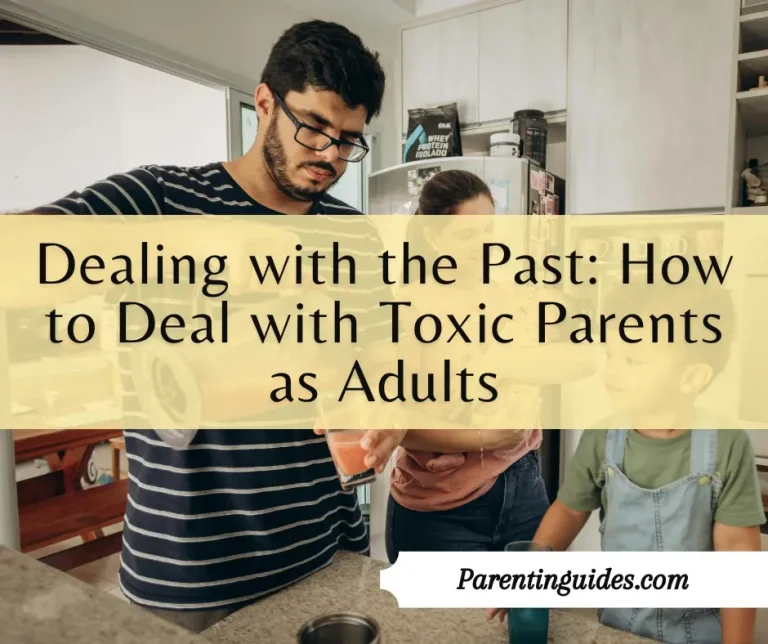Parenting is no small task. It challenges us in ways we never anticipated. As a mother, I often find myself caught between my love for my husband and the welfare of our children. It’s particularly tough when tensions rise, and the question, “Why is my father always angry at me?”. Here, it becomes a recurring echo in our home. This issue isn’t just ours. Many families grapple with similar challenges. Understanding the heart of this anger is crucial not just for peace at home. It is for the emotional well-being of our children.
The impact of a father’s anger is profound and far-reaching. It shapes how children view themselves and their world. When my children ask me in their quiet moments, “Why is my father always angry at me?”, it breaks my heart. They feel it’s their fault. Observing their confusion and hurt has driven me to seek deeper answers. It’s important for them, and for me, to understand that this isn’t about blame but about understanding. The reasons behind the frequent outbursts need to be addressed, not just for our immediate family’s harmony. It is for the emotional development of our children.
In this article, I will explore various facets of why a father might often seem angry. We’ll look into psychological factors, including the possibility that past experiences or stress might be influencing his current behavior. Relationship dynamics also play a crucial role; misunderstandings and expectations can add to the strain. Health and lifestyle influences cannot be overlooked either, as physical well-being directly affects one’s mood and patience levels. Additionally, external influences such as economic conditions or social relationships might be contributing factors.
I invite you to join me as we delve into these topics. It’s a journey toward understanding, a path to potentially easing the strain in our households. It’s about finding ways to address the question, “Why is my father always angry at me?” with empathy and informed action. Let’s explore together, seeking answers and solutions to bring back the peace and love that every family deserves.
The Psychological Factors for “Why is my father always angry at me?”
Father’s Background and Childhood
Reflecting on my husband’s childhood has helped me understand that the seeds of his current anger were often sown early in life. Growing up, he frequently faced high expectations from his parents, which rarely came with praise but often with criticism. These early experiences, I’ve come to realize, deeply affect him even today. When our children ask, “Why is my father always angry at me?”, it’s sometimes a reflection of his unresolved feelings from his past. His father was quick to anger, and this behavior is something my husband inadvertently learned and sometimes mirrors. Understanding this has been crucial. It’s not just about his temper; it’s about the echoes of his childhood, calling for patience and understanding from us all.
Stress and External Pressures
In our lives today, stress seems omnipresent. Whether it’s the pressure of maintaining his job in an increasingly demanding market, worries about finances, or simply the daily grind of life, these stressors take a toll on my husband’s mood. He often brings these pressures home, where they sometimes explode into anger. It’s difficult for the children, who might quietly wonder, “Why is my father always angry at me?”. It i simply when they see him stressed. They don’t understand that his outbursts are less about them and more about external pressures he feels unable to control. Recognizing this has been essential in helping our family navigate through tough times by fostering a supportive and empathetic home environment.
Personality and Emotional Regulation
My husband’s personality and his way of handling emotions also contribute significantly to the frequency of his anger. He has always been someone who feels deeply but struggles tremendously with expressing these emotions constructively. His difficulty in managing stress and communicating his feelings often results in sudden bursts of anger. Our children, puzzled and hurt, might think, “Why is my father always angry at me?”. This is particularly challenging during tense moments when his short temper becomes the forefront of his interactions. We’ve been learning together about emotional regulation techniques. They have been beneficial not only for him but for our family’s dynamics. Understanding and working on these aspects of his personality are critical steps towards healing and better family relationships.

Relationship Dynamics
Communication Patterns
In our family, communication, or the lack thereof, can often be a root cause of frustration and anger. My husband and I sometimes struggle with open and effective communication. He tends to bottle up his concerns until they burst forth in a wave of anger. This leaves our children puzzled, leading them to wonder, “Why is my father always angry at me?” The cycle of silent brooding followed by explosive outbursts creates misunderstandings and fear. By recognizing these patterns, we are taking steps to foster an environment where everyone feels safe to express their feelings openly and without judgment. Encouraging each family member to share their thoughts and feelings has gradually helped decrease the frequency of angry outbursts.
Communication isn’t just about talking; it’s about connecting. When we fail to connect, it often leads to feelings of isolation for my husband, which can exacerbate his anger. We’re learning together how to not only talk but to listen to each other. This shift is slowly helping to ease the “Why is my father always angry at me?”, that haunts our children. They are replacing it with more understanding and less fear.
Role Expectations and Responsibilities
The weight of societal and familial expectations can be overwhelming. My husband often feels the pressure to be a certain kind of father, the provider, the protector, the unemotional rock. These expectations, coupled with the day-to-day responsibilities of family life, can lead to significant stress, manifesting as anger. Sometimes, in his frustration, the question “Why is my father always angry at me?” becomes all too common at home. Recognizing this, we’ve been trying to redefine what being a ‘good father’ means in our family. It is emphasizing the importance of being present and emotionally open rather than just fulfilling traditional roles.
This re-evaluation of roles involves looking at our expectations and responsibilities and adjusting them. So, they’re more in balance with what we can realistically manage. It’s about understanding that it’s okay for a father to ask for help, to admit vulnerability, and to step back sometimes. These changes help ease some of the pressures that contribute to his anger. They are also creating a more relaxed and understanding family atmosphere.
Historical Conflicts
Unresolved conflicts from the past can linger like shadows over the present. In our relationship, there are unresolved issues that have carried over through the years. They can suddenly reignite, leading to anger that our children don’t understand. When they see these outbursts, it’s natural for them to think, “Why is my father always angry at me?”. Here, they don’t see is the history behind this anger. Addressing these past conflicts openly has become a priority for us to prevent them from casting a shadow over our current lives.
We’ve been working on addressing these issues directly, whether they’re small misunderstandings or significant disputes from years ago. Bringing these to light and discussing them openly might not be easy, but it’s essential for healing. This process helps clarify for our children that these moments of anger aren’t about them but rather about us as parents working through our past. Each step in resolving these conflicts helps to lessen the burden of the question, “Why is my father always angry at me?”. It helps our family move forward together in understanding.
Health and Lifestyle Influences
Mental Health Issues
Reflecting on our experiences as a family, I’ve come to realize that mental health plays a crucial role in my husband’s behavior. There are days when his mood shifts dramatically, and it’s clear that these aren’t just bad days. Here, they could be signs of underlying mental health issues. When our children quietly ask, “Why is my father always angry at me?” it becomes apparent that they’re noticing these shifts too. This has prompted us to consider seeking professional help to address possible depression or anxiety that might be affecting his anger. Both he and our children need to understand that mental health can significantly influence one’s emotions and reactions. We are learning together that taking care of our mental health is as crucial as taking care of our physical health.
Physical Health and Wellbeing
My husband has often neglected his physical health, which I see as directly impacting his emotional state. A lack of regular exercise and a balanced diet might not seem like big issues on their own, but over time, they take a toll on their mood and energy levels. This often leads him to be more irritable and prone to anger. The children, sensing his frustration, might wonder, “Why is my father always angry at me?” not realizing that his physical discomfort often manifests as emotional distress. We are now focusing more on integrating healthier lifestyle choices for the entire family, encouraging him to join us in these activities, helping reduce stress, and improve overall mood. These small changes are slowly helping to alleviate some of the tensions at home.
Substance Use
Substance use is a sensitive subject in our household. There have been instances where alcohol has played a role in exacerbating my husband’s anger. The children, confused and scared, often find themselves thinking, “Why is my father always angry at me?” especially during times when his drinking becomes more frequent. It’s a difficult cycle to witness and an even harder one to break. We are actively working towards addressing this issue, seeking help from professionals to guide us through reducing and eventually eliminating this influence on our family dynamics. Recognizing and confronting the impact of substance use is a significant step towards healing and helping our children understand that their father’s anger is not their fault and can be managed with the right interventions.
Addressing these health and lifestyle factors is crucial for our family’s well-being. Each step we take is a move towards understanding and mitigating the reasons behind the persistent question, “Why is my father always angry at me?” and building a healthier, happier home environment.

External Influences and Social Context
Cultural Factors
In our community, certain cultural expectations place a significant burden on fathers. My husband often feels the weight of these expectations, feeling pressured to conform to traditional roles. This includes being the main provider and not showing vulnerability or emotion, which is often seen as a sign of weakness. These cultural norms can lead to significant stress, manifesting as anger when he feels he isn’t meeting these expectations. When the children wonder, “Why is my father always angry at me?” they don’t see the invisible cultural forces at play that influence his behavior. Recognizing this has helped us to have important discussions about these pressures and to slowly start breaking down these outdated norms to foster a more open and emotionally supportive environment at home.
Social Relationships
My husband’s social interactions also play a crucial role in his emotional well-being. When his relationships with friends, colleagues, or extended family are strained, it often spills over into our family life. He might come home upset or disturbed after a difficult interaction, which can lead to outbursts of anger. The children, hearing these outbursts, might ask themselves, “Why is my father always angry at me?” not knowing the context of his frustrations. We have been working on building a stronger support network and encouraging him to share his social stresses with me, which has helped him manage his reactions better. This shift has been crucial in helping our children understand that their father’s anger isn’t a reflection of their actions.
Economic Conditions
Economic stability is a cornerstone of emotional security for many, and for us, it’s no different. Fluctuations in our financial situation have a direct impact on my husband’s state of mind. During times of financial uncertainty, his stress levels increase, often resulting in a short temper and irritability. This financial pressure makes him more prone to anger, leading our children to question, “Why is my father always angry at me?” It’s a challenge to explain the complexities of economic pressures to children. However, by being open about our financial situation in an age-appropriate way, we help them see that these stresses are external and not their fault, which is important for their emotional security.
Addressing these external influences is key to understanding the broader context of my husband’s behavior. By discussing and mitigating the impacts of cultural norms, social relationships, and economic conditions, we aim to reduce the instances where our children feel the need to ask, “Why is my father always angry at me?” Building awareness around these factors helps create a more understanding and supportive family environment.
Coping Mechanisms and Solutions for “Why is my father always angry at me?”
Seeking Professional Help
Understanding the importance of professional help has been a turning point for us. Initially, there was some resistance, particularly from my husband, who was hesitant to seek therapy. However, the recurring question from our children, “Why is my father always angry at me?” made it clear that we needed external support. We began family counseling, which has been instrumental in addressing not just my husband’s anger but also its impact on all of us. Therapy has provided us with a safe space to explore our feelings and experiences without judgment. This step has been crucial for healing and understanding, helping to reduce the instances of anger and improve our family dynamics significantly.
Professional help has not only benefited my husband but also taught our entire family better coping and communication strategies. The children now understand that their father’s anger isn’t their fault, and they are learning healthy ways to express their concerns. This guidance has been invaluable in helping us navigate the complex emotions and situations that arise in our family life. It’s a process, but one that is gradually leading to a more peaceful home environment.
Improving Communication
One of the most effective strategies we have implemented to reduce the frequency of “Why is my father always angry at me?” is improving our communication within the family. We’ve introduced regular family meetings where everyone, including the children, can share their feelings and concerns openly. These meetings have helped to break down barriers and misunderstandings that previously led to frustration and anger. By encouraging honest and open dialogue, we’ve seen a significant decrease in miscommunications and an increase in mutual understanding and support.
Improving communication has also involved teaching everyone in the family, including my husband, how to express emotions constructively. We use simple techniques like “I feel” statements to articulate our feelings without blaming others, which helps to prevent defensive reactions and fosters a more supportive atmosphere. These efforts have been essential in changing the way we interact, and reducing the need to ask, “Why is my father always angry at me?”.
Self-help Strategies for the Individual
On a personal level, self-help strategies have been pivotal in maintaining our family’s mental health. For my husband, this has included activities like regular exercise and mindfulness practices. It has noticeably helped in managing his stress and anger. We’ve also focused on ensuring that each family member, including myself, spends time on activities that they enjoy and find relaxing. This personal time helps us all to decompress and manage stress, which in turn reduces the overall tension in the home.
For the children, understanding self-help techniques has empowered them to handle situations when they feel overwhelmed by their father’s mood swings. Simple strategies like taking deep breaths, discussing their feelings with me, or engaging in a favorite hobby provide them with tools to cope more effectively. These strategies ensure that when they ponder, “Why is my father always angry at me?”. Here, they also have ways to help themselves feel better, reinforcing the idea that while they cannot control all aspects of their environment. So, they can control how they respond to it.
Implementing these coping mechanisms and solutions has been instrumental in addressing the complexities of why my husband might be angry and how it affects our family. Here, it’s a journey that requires patience, understanding, and proactive efforts.

Conclusion
Throughout this journey of understanding why my husband, the father of our children, often seems angry, we have uncovered numerous factors that play a role. It’s not easy to navigate through the complexities of such emotions, but it’s necessary for the well-being of our family.
Every time our children ask, “Why is my father always angry at me?”, it is a reminder of the work we still need to do. It is not just as individuals, but as a family unit. It’s a question that has driven us toward seeking professional help, and improving our communication. So, these steps are critical in transforming our home into a space where anger is not the response to every challenge.
This article isn’t just a reflection of our struggles. It’s a beacon for others facing similar situations. To those families, know that understanding the roots of anger can lead to meaningful changes. It’s about shifting from asking “Why is my father always angry at me?” to explore how we can support each other better. This change doesn’t happen overnight. It requires patience, empathy, and a lot of hard work.
I encourage every reader to approach their family dynamics with empathy and openness. Engage in conversations, seek help when needed, and above all, provide the support that each family member needs to thrive. Remember, the goal isn’t just to stop the anger but to understand its origins and heal together.
In conclusion, let this exploration be a step towards healing and positivity in your homes. With each step, we get closer to replacing questions of anger with conversations about love and understanding. Let’s work towards not just peace but genuine happiness within our family dynamics. So, join us to answer “Why is my father always angry at me?”. It’s a journey worth taking for the sake of our children and our future as a family.





